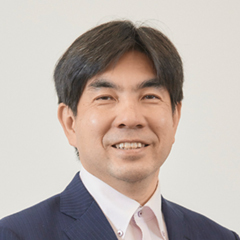Division resulting from the pursuit of a convenient life
In recent years, it is said that an increasing number of people become angry easily, with no room in their hearts. There are also many slanderous posts on the Internet that seem to be intended to show disgust.
Many people with these frustrations may keep their worries, frustrations, problems, or illnesses to themselves and have no one to ask for help or confide in.
Cities, in particular, are designed to be convenient and efficient, enabling people to live in a less connected environment.
However, the increase in the number of people who are mentally depressed due to irritability and stress indicates that it is difficult for people to live comfortably with convenience and efficiency alone.
In addition, the pursuit of convenience and efficiency leads people to view things in a simplistic and narrow manner. This is because a multifaceted way of thinking about things can become cumbersome.
In fact, today, relationships between urban and rural areas, mountains and towns, eaters and cooks, and producers and consumers have all become black boxes. This is because of the greater convenience and efficiency.
For example, people living in cities also eat crops and livestock products every day. But I don’t think many people understand or want to understand who makes them, how they are made, and how they get to their tables. Knowing this is tedious and inefficient.
You can eat anything as long as you pay. This can be achieved in a convenient and efficient society.
However, if we have lost sight of our relationships with producers because of the advancement of a convenient and efficient society, if this has led to our isolation, and if it is a factor in our mental depression, then changing such a situation will also protect us.
So, what can we do to achieve this? If your relationships are black-boxed by the social structure, try to make contact with yourself.
For example, in recent years, farms where you can experience farming and rental farms are increasing in the suburbs of cities. When you actually experience agriculture in such a place, you can see and understand many things.
I don’t think it’s all easy or fun. Rather, farming is all about tedious and laborious work.
But I think you will also find that what you harvest that way tastes significantly better than what you buy at a supermarket.
Once you get to know a little bit of what used to be a black box, you may find something fascinating in it.
But, of course, you don’t have to give up the entirety of your convenient and efficient life. You just need to incorporate what attracts you into your everyday life and way of living. In other words, you should be “greedy” to get the best of the best. I see it as a moderation.
Tokainaka Village Concept for learning about rural life
Moderation is often thought of as a lack of individuality and everyone being the same, but I think it is more likely that being left or right, rather than moderate, will bind you and make you feel constricted.
If there is something that looks good on the right, you can go and see it, and if there is something that looks interesting on the left, you can go and experience it, to broaden your scope. In other words, by keeping your position neutral, you can have a relationship to both the right and the left. I consider that to be moderation.
In recent years, there have been calls for diversity and inclusion that embraces diversity, a symbiotic society, and the realization of a dual lifestyle where people live in two locations. To do this, it is necessary to be able to understand and reflect on others through contact with them.
In other words, we need to break the black box that creates division. For that reason, I think it is important to be moderate.
Matsumoto Denzaemon Farm in Kawasaki City, the same area as Meiji University’s Ikuta Campus, is promoting the Tokainaka Village Project as a site for people with such a sense of moderation to interact with each other, and I am involved in the project with my former teacher.
This project is an activity to bring city dwellers into contact with rural life. Members can farm in their own way in the farm’s fields, and non-members can also participate in harvesting and other activities.
Visitors to this place are surprised by the traditional fields and village forest in a location where you can see the skyscrapers of Shinjuku, and they can feel the comfort of this place.
Also, many people find that helping each other and receiving guidance from farmers and working up a sweat on the farm help to ease the fuzziness in their minds and bodies and calm their minds.
In addition, people with mental and physical disabilities are also stabilized by the experience.
Freshly picked vegetables are sweeter and tastier than those sold at supermarkets. The more delicious the crop, the more bugs it attracts.
But it’s very difficult to grow it that far. Through various experiences, such as the fact that crops grown in this way are sometimes washed away by heavy rain just before harvest, we learn many things that we have never known before.
Above all, we are impressed by the generosity of the farmers. Even if crops that have been carefully cultivated with time and effort become damaged because of persistent high temperatures, heavy rain, hail, etc., they do not become irritated or complain, but accept it naturally, and then try to find and devise the best solution.
For those of us who are familiar with people who become angry easily when something bad happens, the generosity of farmers and their capacity as human beings is beyond surprising to us and makes us respect them.
It is also an opportunity to take a fresh look at what our problem was.
Having an original experience that fosters multifaceted thinking
In accounting, which is my specialty, there is a term “balancing out.” The term is used outside of accounting as well, but in the first place, it means that income and expenditures match.
In other words, if there is something gained at hand, there is something lost and unseen, and the two are balanced. This concept is utilized for double-entry bookkeeping, which shows the movement of things and money from the two sides of debits and credits.
When we look at things with this kind of multifaceted thinking, we see that when we pay for things, we build relationships with the people who created them, rather than liquidating them.
As you become aware of these relationships, you realize that “balancing out” is a win-win situation for both parties.
In the past, merchants in Omi region used to call this relationship “sampo yoshi” (good in three ways) because this win-win situation extends to society. Recently, it is also called “shiho yoshi” (good in four ways), which includes “mirai yoshi” (good future) or “chikyu yoshi” (good earth). How is the fourth good for you?
It may also lead to the solution of modern social issues.
Of course, I think some people are satisfied enough with city life and don’t feel any trouble. I do not intend to pressure such people to participate in the Tokainaka Village Concept.
But in the future, when something happens, if you have knowledge and thoughts about the producers in a corner of your mind as a consumer, it can be a trigger for a solution.
In that sense, I think it is meaningful to have such an original experience at an early age and at a young age.
Of course, it is not limited to the Tokainaka Village Concept. I think it could be by working on a farm at a nearby rental farm, or by buying and eating freshly picked vegetables at a direct sales market.
The important thing is not to be biased toward one side and exclude the other without broadening one’s perspective. Otherwise, you may hurt others or yourself without knowing it.
Above all, being biased makes you feel constricted. More than that, I think that in order to know the joy of moderation and how easy it is to live in moderation, it is necessary to have an original experience that fosters multifaceted thinking.
* The information contained herein is current as of September 2022.
* The contents of articles on Meiji.net are based on the personal ideas and opinions of the author and do not indicate the official opinion of Meiji University.
* I work to achieve SDGs related to the educational and research themes that I am currently engaged in.
Information noted in the articles and videos, such as positions and affiliations, are current at the time of production.


